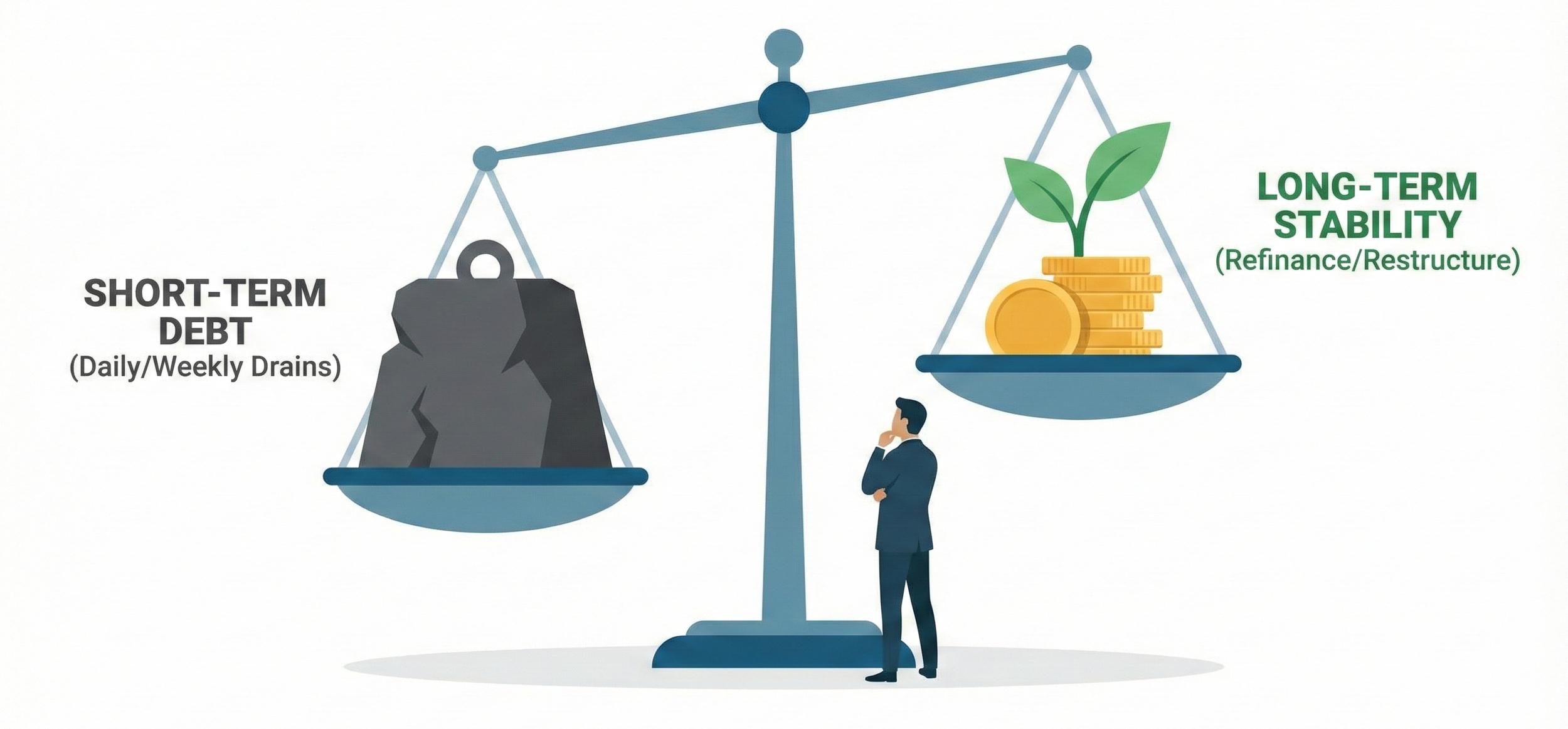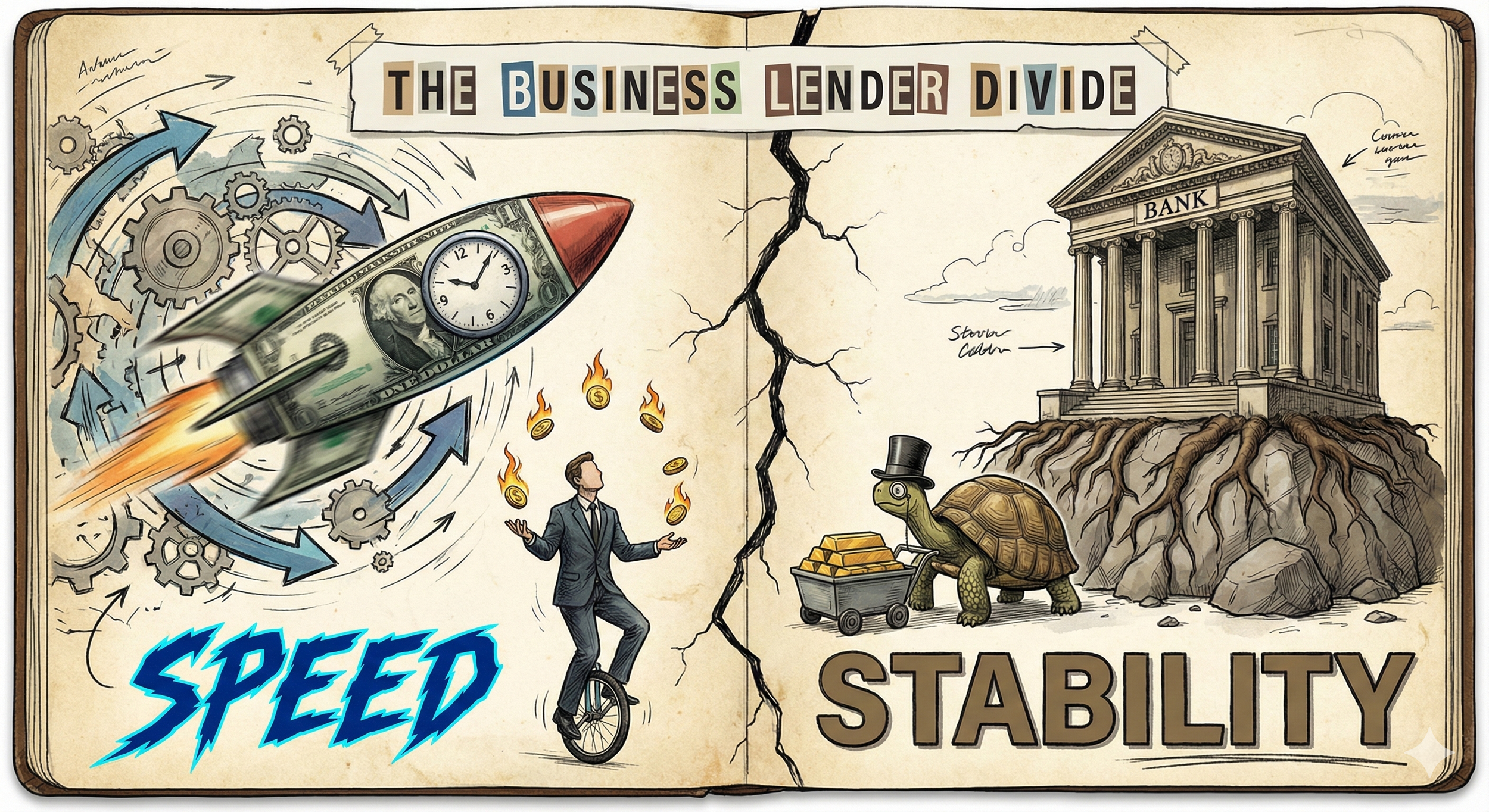The path to business growth is often blocked by a single, formidable obstacle: a lack of capital.
Navigating the complex and often opaque world of business financing can feel like a full-time job in itself. The jargon, the endless paperwork, the varied lender requirements—it’s enough to make even the most determined entrepreneur feel overwhelmed.
This is where a business funding broker is supposed to step in. They promise to be a guide, a trusted partner with the expertise and connections to secure the funding you need, allowing you to focus on what you do best: running your business.
However, not all brokers are created equal. While many operate with integrity and a genuine desire to help, a significant number are simply incompetent. Their lack of knowledge, poor communication skills, and general inexperience do not stem from malice or deception but from a profound lack of professional acumen.
The result, however, can be just as damaging as outright fraud. Incompetence in this field can lead to missed opportunities, wasted time, financial losses, and, in some cases, the complete derailment of a business's growth plan.
This article will shine a light on the many faces of broker incompetence, detailing the specific ways a poorly equipped broker can hurt your business and what you can do to protect yourself.
A broker who lacks expertise and professionalism can waste your time, damage your credit, and steer you toward a poor-fitting loan that hinders your business's growth.
To protect your business and ensure you're working with a competent professional, here are key red flags to watch for and steps you can take to avoid a bad experience:
Red Flags for an Incompetent Broker
Vague or Evasive Communication: A good broker is a partner who keeps you informed. If they take days to return your calls, provide unclear answers, or seem to misunderstand your questions, it's a major red flag. This lack of responsiveness signals disorganization and can cause critical delays in a time-sensitive process.
A "One-Size-Fits-All" Approach: Your business is unique. A broker who doesn't take the time to deeply understand your specific financial health, industry, and goals is likely to misdiagnose your needs. They'll push you toward the most generic, high-cost solutions instead of finding the best fit.
Unrealistic Promises: Beware of brokers who promise impossibly fast approvals, extremely low interest rates, or loan amounts far beyond what your financials can support. A competent broker is realistic and transparent, setting accurate expectations from the start.
Limited Network: A broker's value is their network. If they can't clearly articulate the types of lenders they work with or the specific relationships they have, they may just be submitting your application through the same public online portals you could use yourself.
The Misdiagnosis of Your Business Financial Health
A competent business funding broker begins their work with a thorough and accurate assessment of your business's financial health. They should understand your cash flow, debt-to-income ratio, credit score, and overall financial picture to determine what types of funding you are a good candidate for.
An incompetent broker, however, will often rush this crucial first step. They may rely on a superficial glance at your financials or a simple credit check, leading to a fundamental misdiagnosis of your business's situation.
This incompetence results in two equally damaging outcomes. First, they may spend weeks or months pursuing a type of funding that your business will never qualify for. For example, they may try to secure a traditional bank loan when your business's cash flow can only support a less traditional, high-risk merchant cash advance.
This is not only a colossal waste of time, but it can also lead to numerous hard credit inquiries that damage your credit score, further limiting your future options.
Second, they may fail to identify the most advantageous funding opportunity. They might overlook a grant, a specific line of credit, or a small business administration loan for which you are perfectly qualified, instead pushing you toward a more expensive and less suitable solution.
The foundation of any successful funding search is a correct diagnosis, and a broker who gets this wrong from the start is an incompetent liability.
Poor Communication and Lack of Responsiveness
One of the primary benefits of working with a broker is their ability to act as a clear and consistent intermediary between you and potential lenders. A competent broker keeps you informed every step of the way, providing updates on your application status, clarifying lender questions, and managing expectations. An incompetent broker, by contrast, is a black hole of communication.
They may take days or even weeks to respond to your emails or phone calls. When they do respond, the answers are often vague, unhelpful, or show a clear misunderstanding of your questions. This lack of responsiveness creates a ripple effect of problems. It can cause crucial delays in the application process, which in the fast-paced world of business finance can be the difference between securing a loan and a deal falling through.
It forces you, the business owner, to spend countless hours chasing them for updates, a task you hired them to do in the first place. This poor communication also signals a broader lack of professionalism and organization, which will undoubtedly manifest in other aspects of their work.
Submitting Incomplete or Incorrect Applications
The application process for business funding is notoriously detailed and unforgiving. A single missing document or a small error can cause a lender to deny your application outright.
A competent broker is a meticulous professional who knows exactly what each lender requires and ensures every piece of the application is complete and accurate before submission.
An incompetent broker, however, will rush the process. They may submit an application with missing financial statements, outdated tax returns, or incorrect business information. This is not a simple oversight; it is a fundamental failure of their primary function.
The result is an immediate denial from the lender, which not only wastes time but also puts a hard inquiry on your credit report. It forces you to start the process over, potentially with a different, more competent broker, and with a damaged credit history.
The broker's incompetence has now created a direct, negative impact on your business's financial standing and future funding prospects.
The Lack of a Genuine Lender Network
A broker's value proposition is their access to a wide and diverse network of lenders. A good broker has established relationships with banks, credit unions, alternative lenders, and private investors. They understand each lender's specific criteria and can match your business with the most suitable one. An incompetent broker, on the other hand, often has no such network.
They may claim to have an extensive list of contacts, but in reality, they are merely submitting your application through the same online portals that you, the business owner, could have used yourself. They do not have genuine relationships or a deeper understanding of the lending landscape. This incompetence means they cannot provide you with a strategic advantage; they are simply an unnecessary and costly middleman.
They are unable to advocate for your business or negotiate on your behalf because they do not have a working relationship with the people making the lending decisions. You are paying for a service that is not being delivered, and the lack of a real network limits your options to the most generic, often high-cost, solutions.
The Inability to Structure a Proper Deal
A business funding deal is not just about securing a loan; it is about securing the right type of funding with the most favorable terms for your specific business needs.
A competent broker is a financial strategist who can help you structure a deal that aligns with your short-term cash flow needs and long-term growth objectives. They consider factors like repayment schedules, collateral requirements, and the true cost of the loan.
An incompetent broker lacks this strategic vision. They may simply find the first lender to approve an application, regardless of whether the terms are in your best interest. They may not understand the difference between a daily repayment schedule and a weekly or monthly one and how each impacts your cash flow. They may fail to negotiate for a lower interest rate or more flexible terms.
The result is a funding solution that is a poor fit for your business, potentially putting you in a precarious financial position with a payment schedule you cannot sustain. A broker who cannot structure a deal is not a partner; they are a roadblock to your financial health.
The Inability to Negotiate
Securing funding is often a negotiation. A competent broker acts as an advocate and negotiator, working to secure the best possible terms on your behalf. They can argue for a lower interest rate, more flexible repayment terms, or a reduction in fees. They understand where there is room for give and take in a deal.
An incompetent broker simply presents the lender's initial offer and urges you to accept it. They do not possess the skills, relationships, or confidence to negotiate. They may be afraid to jeopardize a potential commission, or they may simply not know how to advocate for their client. This means you are likely to end up with a more expensive loan than you could have otherwise secured.
You are paying a broker's fee for a service that they are not fully providing, and the cost of this incompetence can be measured in the higher interest payments you will be making for months or years to come.
The Inexperience with Your Specific Industry
The lending landscape is highly specialized. A lender who is comfortable with a restaurant's cash flow may not be the right fit for a construction company's project-based revenue model. A competent broker understands these nuances and knows which lenders specialize in or are favorable to certain industries.
An incompetent broker, however, treats all businesses the same. They will submit your application to general lenders who may not understand your industry's unique financial cycles or risks. This lack of industry-specific knowledge is a form of incompetence that can lead to immediate rejections.
The broker's inability to speak the language of your industry or understand its specific challenges prevents them from properly presenting your business to the right lenders. You are paying for a generalized service when you need a specialized one, and this mismatch is a recipe for a failed funding search.
The Failure to Manage Expectations
A competent broker is realistic and transparent about the funding process. They set accurate expectations from the start regarding timelines, potential costs, and the likelihood of approval. They do not make promises they cannot keep. An incompetent broker, on the other hand, often sets unrealistic expectations.
They may promise an impossibly fast approval, a ridiculously low interest rate, or a loan amount that is far beyond what your financials can support. These promises are not a deliberate deception, but a result of their inexperience or lack of understanding of the lending market. When these promises inevitably fall through, the business owner is left feeling frustrated, lied to, and with the sense that their time has been wasted. This incompetence creates a damaging cycle of hope and disappointment that can exhaust a business owner and cause them to abandon the search for funding altogether.
The Lack of Due Diligence on Lenders
Part of a broker's job is to vet the lenders they work with. A competent broker knows which lenders are reputable, have a history of fair dealings, and offer transparent terms. An incompetent broker, however, may not perform this crucial due diligence. They may, out of ignorance, connect you with predatory lenders who charge exorbitant rates, have confusing fee structures, or operate with a history of consumer complaints.
This is a form of passive incompetence that can have active, and devastating, consequences. The broker does not intend to harm you, but their failure to properly vet their lending partners puts your business at significant risk. You end up with a high-cost loan that could cripple your cash flow and put your business in jeopardy. The broker's inability to protect you from the shadier corners of the lending world is a fundamental failure of their professional duty.
What is the Best Way to Deal with Business Debt Payments that are Too High and causing Business Cash Flow issues?
It is NOT by stopping ACH payments.
It is NOT by taking on another business loan.
It is NOT ALWAYS a Refinancing
It is NOT by entering into a debt settlement program.
Find out the BEST strategies to get your Business back to where it was































